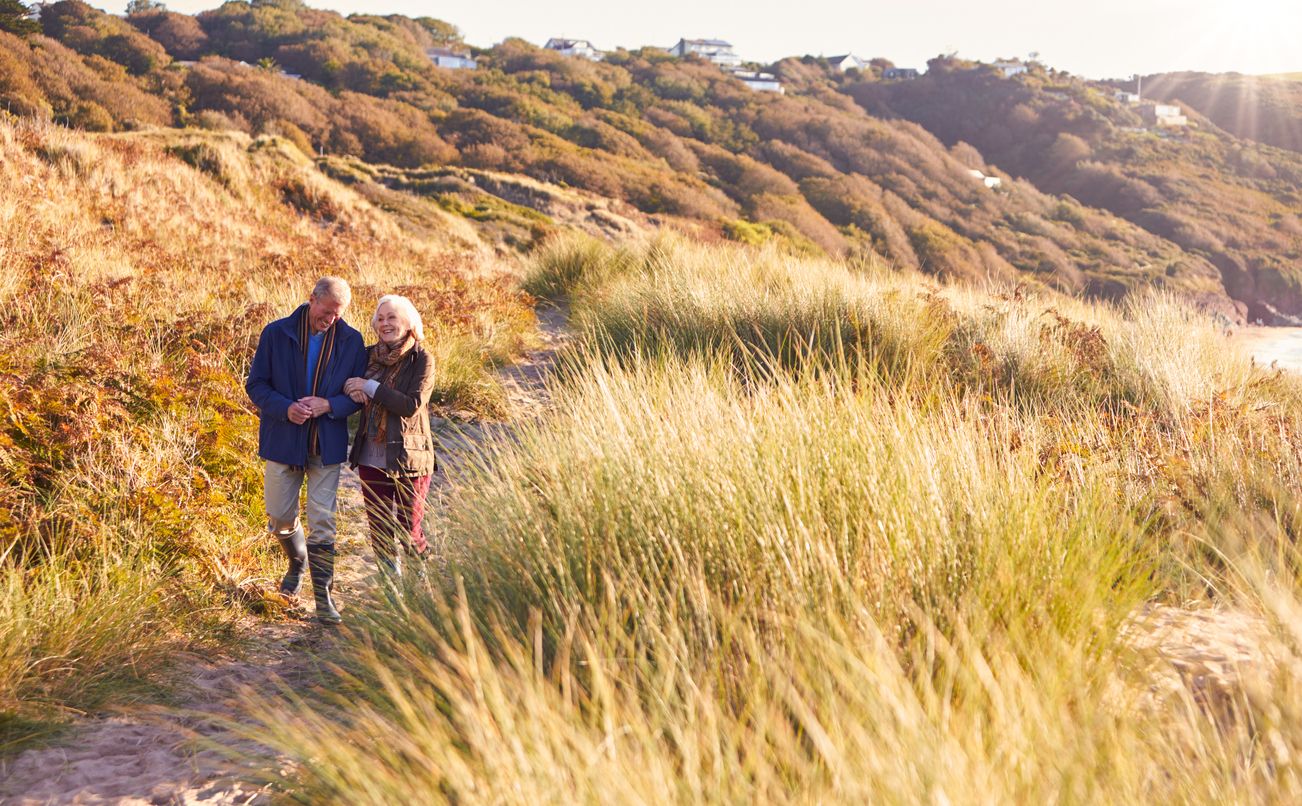How getting outside everyday can benefit your mental health

As kids our parents always told us to “go play outside, it’s good for you”, but did they just say that to get some peace and quiet or is there actually a benefit to spending more time outdoors? Besides the obvious physical benefits of getting some fresh air and moving more, there are actually lots of mental health benefits of being outside.

First up, studies have shown that spending time in nature can not only improve your mood, but it can also reduce the symptoms of anxiety, stress and mild to moderate depression [1]. Everyone has a different relationship with nature and nature will look different depending on where you live, but studies have shown that spending 120 minutes a week in nature is associated with better health and improved wellbeing [2].
The visual stimulation of being surrounded by green spaces or the blue of the ocean and lakes is one contributing factor. But it’s also the sounds of nature that help soothe our minds and lift our mood. Many apps and wellbeing programs utilise these sounds to help you fall asleep faster or relax during a meditation session. But really just generally being outside and exposing yourself to more natural light in itself has a big impact on both our physical and mental wellbeing. Our bodies run on a 24-hour internal clock, called our circadian rhythm, which is highly dependent on light. It essentially tells us to wake up when the sun is out and makes us feel sleepy once the sun goes down. When we spend a lot of time indoors with dimmed light or are only exposed to the blue light of our electronic devices, it can mess with our biological rhythm. So, spending more time outside might help your body readjust.
The Japanese practice something called “forest bathing” (also called ‘shinrin-yoku’), which is essentially just spending time in a forest but using all five senses to really take in your surroundings. It’s not about exercising but simply about being in nature. Forest bathing has shown to decrease blood pressure, stress and heart rate, as well as markers of depression and anxiety [3].

GP’s in Shetland have actually been able to prescribe nature to some of their patients to help improve their health and wellbeing [4]. It is a non-drug approach to health which is easily accessible, free and allows patients to reconnect with their surroundings. It’s a concept that is already used in America, with the aim to reduce the risk of chronic conditions such as type-2 diabetes and hypertension, and to help those with obesity and mental health issues [5]
To make the most of this concept you need to find a space that works for you. How we react to our surroundings will be different from person to person. Try to find a space that is easily accessible to you and then build your sensory actions around that. Identify which smells, sounds and views you enjoy. Use your hands to touch things as you wander around and bring some fresh produce with you to engage your sense of taste (if you are an experienced forager you could even try and find things to eat on your walk through nature but please only do this if you have had some foraging training, as there are many poisonous plants out there). If there are no green spaces around you that excite you, try to schedule some time on weekends and take a trip to the countryside or seaside to get your dose of nature.








